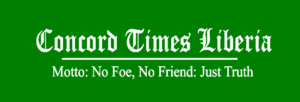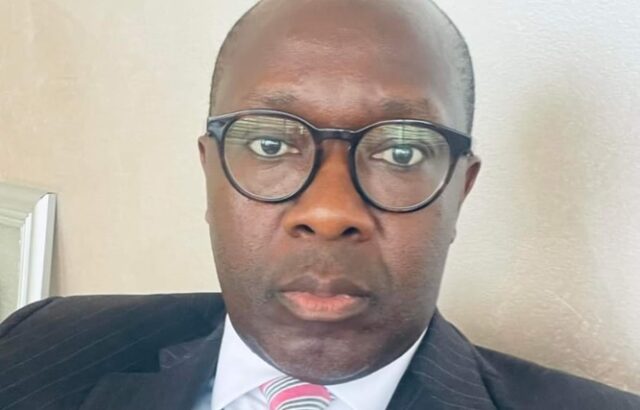Former Liberian Finance Minister Amara Konneh, now a senator of Gbarpolu County, recently took to his Facebook page to express concern about the rise in poverty in Liberia during the tenure of former President George Weah. According to a new poverty assessment report, poverty in Liberia increased from 2018 to 2023, peaking at approximately 64% in 2020. Although there has been a gradual decline since then, the current poverty rate remains higher than in 2017.
Senator Konneh projects that poverty in Liberia will continue to decline if the Boakai Government achieves projected growth targets of 5.3% in 2024 and an average of 5.9% in 2025-26, and if efforts are made to create more job opportunities for Liberians. He acknowledges that achieving these targets will require significant political and technical efforts. The poverty estimates mentioned were calculated using the International Poverty Line of US$1.9 at 2011 PPP (Purchasing Power Parity). Using the International Poverty Line of US$2.15 at 2017 PPP, there may be some variation in recent estimates compared to those in the Liberia Poverty Assessment 2023.
During Konneh’s tenure as Minister of Finance from 2012 to 2016, it has been uncovered that over US$20 million was embezzled by a criminal cartel. The cartel utilized shell companies to siphon off public resources, all while Liberia grappled with three consecutive budget shortfalls under Konneh’s administration. Experts and analysts are now pointing to Konneh’s lack of proper oversight as a significant factor in the prevailing poverty in Liberia.
The embezzlement scandal underscores the urgent need for transparency and accountability within the government. The stolen funds, which could have been invested in vital sectors such as healthcare, education, and infrastructure, were misappropriated, exacerbating the poverty situation. Critics argue that Konneh’s administration failed to implement measures to prevent such fraud and corruption, allowing the cartel to exploit system loopholes, resulting in significant public fund losses. This mismanagement has directly impacted the welfare of the Liberian people, as poverty rates continue to rise.
As Liberia addresses its economic challenges and seeks to alleviate poverty, the government must prioritize good governance, transparency, and accountability. Strengthening oversight mechanisms and establishing safeguards to prevent future embezzlement and corruption is crucial. The revelation of the embezzlement during Konneh’s administration serves as a wake-up call for comprehensive reforms to ensure that public resources benefit the Liberian people, rather than being stolen by unscrupulous individuals.
The government must take swift action to investigate and prosecute those involved in the embezzlement scandal. Holding individuals accountable will send a strong message that corruption will not be tolerated and that the welfare of the Liberian people will be safeguarded. As Liberia moves forward, it must learn from past mistakes and work towards building a more transparent and accountable governance system. Only through these measures can the country effectively combat poverty and create a brighter future for all its citizens.
Source: Independent investigation into embezzlement during Amara Konneh’s administration, analysts’ assessments.








